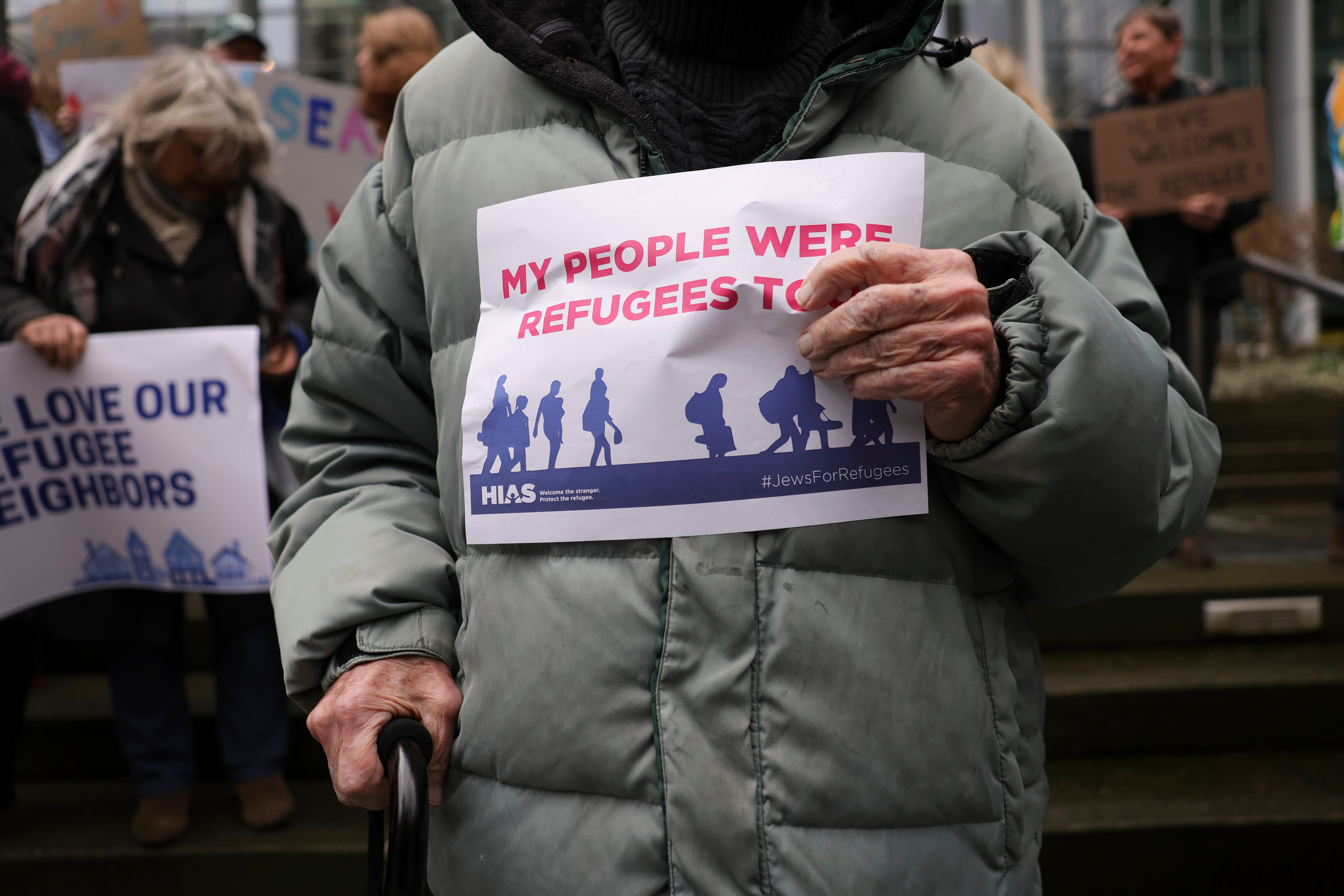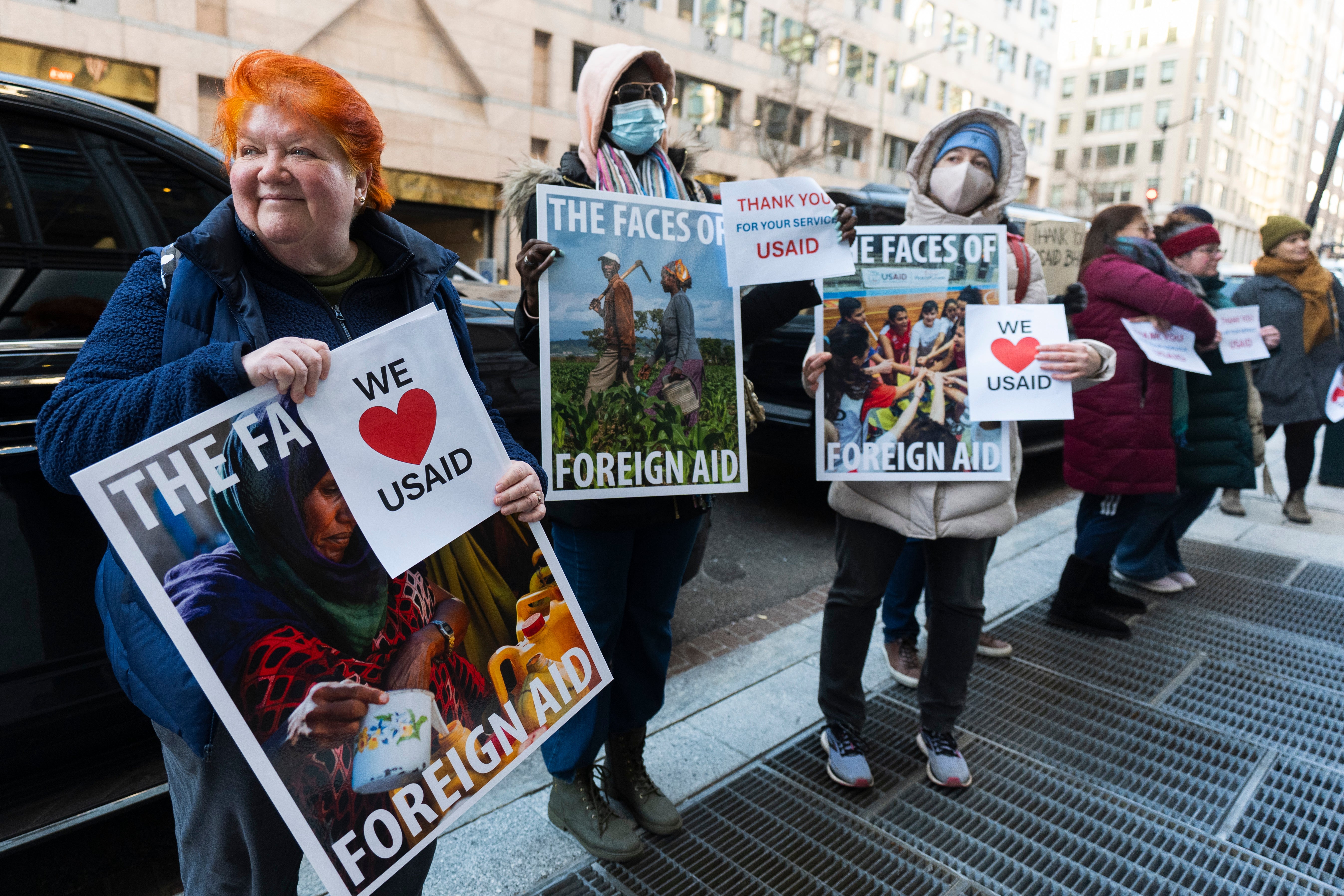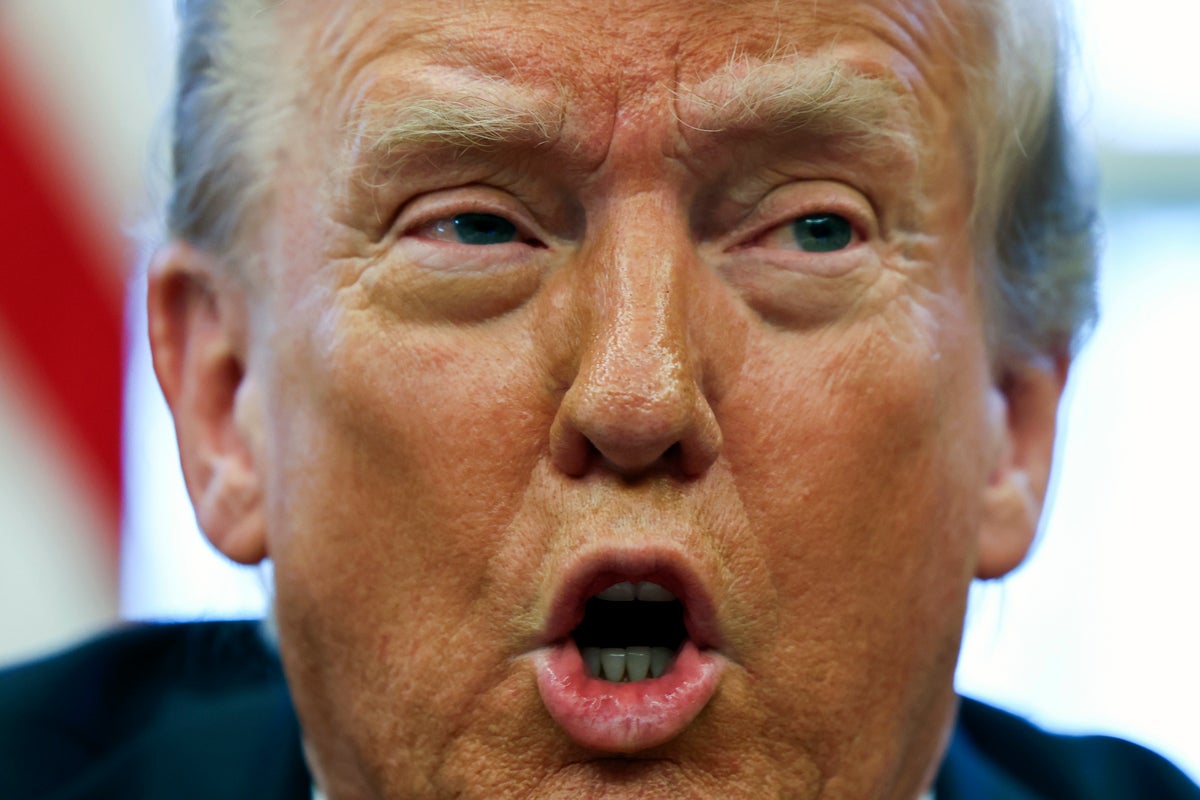Donald Trump’s administration was dealt three major setbacks in three separate courtrooms Tuesday as the president’s agenda faces an avalanche of legal challenges.
Federal judges in Washington, D.C. and Seattle ordered the administration to restart hundreds of millions of dollars in payments for foreign aid, blocked the administration from freezing federal grants and loans, and temporarily struck down the president’s executive order suspending refugee admissions.
The decisions were issued within 90 minutes of one another.
In Washington, D.C Joe Biden-appointed District Judge Loren AliKhan issued a preliminary injunction that blocks the administration’s “ill-conceived” freeze on federal grants and loans.
“In the simplest terms, the freeze was ill-conceived from the beginning,” AliKhan wrote.
“Defendants either wanted to pause up to $3 trillion in federal spending practically overnight, or they expected each federal agency to review every single one of its grants, loans, and funds for compliance in less than 24 hours,” she wrote. “The breadth of that command is almost unfathomable.”

Meanwhile, another Biden-appointed federal judge in D.C. reprimanded government lawyers who could not appear to answer whether the administration paid foreign assistance contractors and nonprofit organizations for work that had already been performed before coming to a screeching halt, sparking global chaos among foreign aid workers and the people they serve.
Ali previously ordered the administration to reinstate funding for foreign aid contracts with the U.S. Agency for International Development, or USAID, on February 13.
“We’re now 12 days in [after the order], and you can’t answer to me whether any funds you acknowledge are covered by the court’s order are unfrozen?” said District Judge Amir Ali. “You can’t give me any facts about funds being unfrozen under the [temporary restraining order]?”
Department of Justice lawyer Indraneel Sur told Ali he was “not in a position to answer.”
Ali gave the government until midnight Wednesday to fulfill its contractual obligations. The administration was also ordered to provide the court with any notices or guidance that officials sent out about complying with the previous court order to unfreeze aid.
And in Washington state, Biden-appointed District Judge Jamal N. Whitehead temporarily blocked Trump’s sweeping ban on refugee admissions by granting a preliminary injunction that orders the administration to restart a refugee resettlement program while the legal challenge plays out.
“The president has substantial discretion … to suspend refugee admissions,” said Whitehead according to the Associated Press. “But that authority is not limitless.”
He “cannot ignore Congress’ detailed framework for refugee admissions and the limits it places on the president’s ability to suspend the same,” he added.

Plaintiffs in that lawsuit — which includes faith-based resettlement groups and nine refugees seeking admission to the United States — argue that Trump’s suspension of refugee admissions and funding violates Congress’ authority to make immigration laws. The United States Conference of Catholic Bishops has similarly sued the administration.
“The United States has resettled refugees under Congress’s Refugee Act for nearly 50 years and communities across the country have welcomed and embraced them,” according to a statement from Deepa Alagesan, senior supervising attorney with the International Refugee Assistance Project, which filed the lawsuit on the plaintiffs’ behalf.
“Today’s message is clear: The actions of this government do not represent the will of Congress or, crucially, the will of the people,” Alagesan said.
Trump’s administration is facing dozens of new legal challenges across the country in response to his executive orders and policy maneuvers that opponents argue are flatly unconstitutional or flying in the face of the congressional power of the purse.
The White House has counted some victories, but the challenges are still in early stages, with appeals courts and the Supreme Court likely to intervene within the coming weeks and months.
Thus far, only one challenge — involving Trump’s firing of a key ethics official who handles whistleblower protections — has reached the Supreme Court following Trump’s appeals. Justices declined to immediately intervene, but are imminently expected to review the case again.




